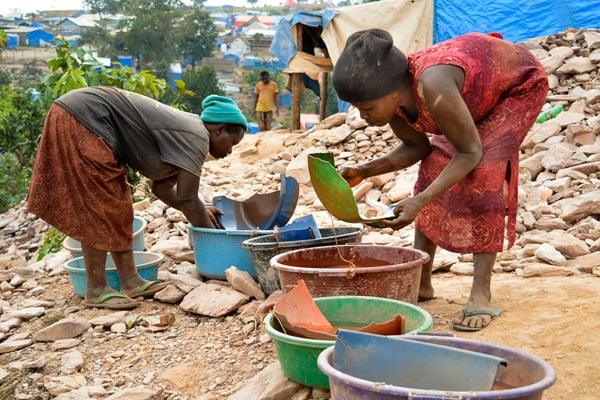Kalangala community urges govt to make new HIV drug available

Mr Ali Ssetaala during the release of results from the research on HIV injectable drug. PHOTO BY DAVID SEKAYINGA
What you need to know:
The injectable drug has proved to offer 100 percent protection against HIV/AIDS in a phase three trial concluded in June this year
Community-based organizations and leaders in the Kalangala district have urged the government to make the new HIV drug, lenacapavir, more affordable and accessible.
The injectable drug has proved to offer 100 percent protection against HIV/AIDS in a phase three trial concluded in June this year. The trial tested whether a six-month injection of lenacapavir would provide better protection against HIV infection than two other drugs, both pills. All three medications are pre-exposure prophylaxis (PrEP) drugs.
A total of 5,300 girls between the ages of 16 and 25 across three sites in Uganda and 25 in South Africa were selected to participate in the trial. In Kalangala District alone, 236 girls participated in the trial from over 10 landing sites across all seven sub-counties. According to scientists, lenacapavir prevents the HIV virus from entering the cell nucleus, an act that leaves no room for the virus to spread and eventually die.
Once the drug receives approval from the World Health Organization, scientists say it will provide a key new HIV prevention option for many people across the globe who could benefit from PrEP. "It would be prudent for the government to talk to Gilead Sciences Inc., an American biopharmaceutical company leading the research, to make the drug affordable to all citizens and available in Uganda," said Ms. Margret Namaganda, the chairperson of the Kalangala Forum of People Living with HIV/AIDS (KAFOOHAN), during a meeting at Kalangala District headquarters where scientists gave an update on the research on Sunday.
Ms. Irene Nakanwagi, the district secretary for health, asked the government to make a special program for all girls who participated in the research. "My fear is what will happen to the girls who participated in the research. A plan should be in place to let them continue receiving this drug since they were selected as those at high risk of being infected," she said.
In response, Dr. Noah Kiwanuka Busuulwa, the head of the Epidemiology and Biostatistics Department at Makerere University School of Public Health and the head of researchers at the Makerere-Kalangala site, said Gilead Sciences Inc. is willing to give the drug to all research participants and make it affordable. "Gilead Sciences Inc. ended the blinded phase of the trial and is willing to offer open lenacapavir to all participants and make it available to low-income countries, including Uganda," he said.
However, he urged Ugandans to continue using all available preventative measures to contain HIV spread. "It is important not to get overexcited about the new drug and fail to use the available preventative methods since we don't know when it will be available."
According to a press release issued by Gilead Sciences Inc., the company is pursuing more research to end the HIV epidemic. "With zero infections and 100 percent efficacy, twice-yearly lenacapavir has demonstrated its potential as an important new tool to help prevent HIV infections. We look forward to continuing our goal of helping to end the HIV epidemic for everyone, everywhere," the statement dated June 20 reads in part.
The HIV/AIDS prevalence rate in Kalangala has fallen from 16 percent to 12.8% in the last few years, an achievement attributed to drugs and community sensitization. Nearly 10,000 HIV patients are receiving antiretroviral treatment in the district at the moment.




